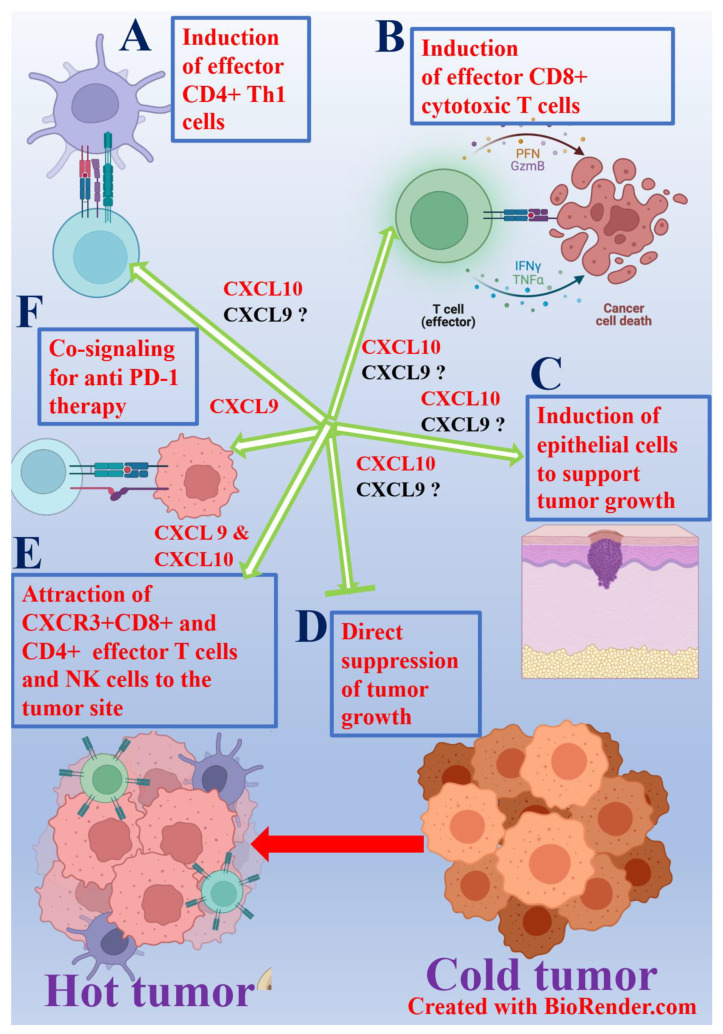Figure 1.
The role of CXCL9/CXCL10 in cancer diseases CXCL9/CXCL10 affect cancer diseases by either: inducing IFNγhigh CD4+ Th1 cells (A), cytotoxic CD8+ T cells (B), inducing growth factors via CXCR3+ epithelial cells (C), direct suppression of tumor growth (D), The attraction of CXCR3+ T cells and NK cells to the tumor site (E) and co-signaling with anti-PD-1 (only CXCL9) (F).

